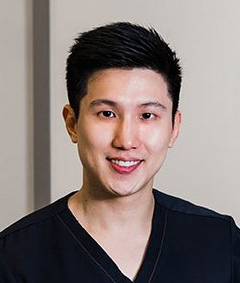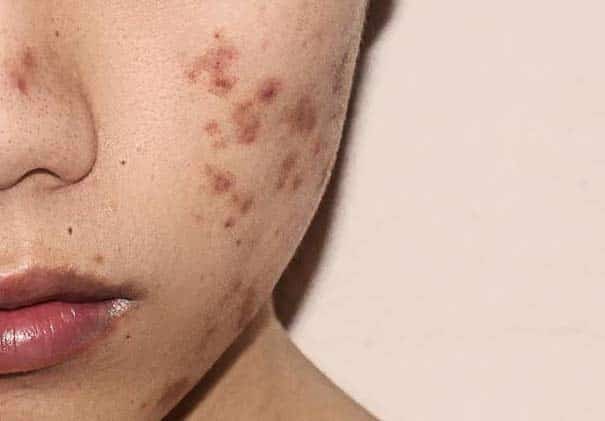As a woman goes through pregnancy, the body undergoes many changes. The skin is not spared when the surge of hormones triggers pigmentations and acne!
Acne in pregnancy is very common and affect up to half of the population.
Contents
What causes acne during pregnancy?
Acne vulgaris in pregnancy is a benign condition, which is usually temporary and likely to clear up once your hormones normalise. treatments posing risk to the fetus is generally not justifiable.
However, acne affects more than just the skin! Pregnancy, as it is, is an emotional phase of our lives contributing by the outrage of hormones. Having a breakout at this time, can lead to low self-esteem, debilitating her social life. In individualised situations, we must carefully discuss and explore all possible treatments available and weigh out each of their risks and benefits. To dismiss oral treatment without careful consideration would be inappropriate.
In this article, we will decode the causes of acne and discuss closely the treatments deem safe and suitable for pregnant mothers and discuss potential risks of certain treatments that should only be considered in extenuating circumstances.
Hormonal changes
In the first and second trimesters of pregnancy, exacerbation of acne is common. This is related to a surge in androgens (male hormones) in the first trimester and continues to rise throughout pregnancy. Androgens stimulate oil production by increasing the activity of sebaceous glands. When more sebum is produced, the glands can get clogged and make it more susceptible to infection by acne causing bacteria.
Impaired glucose tolerance
Studies have shown that food with high GI increases your risk of acne breakouts. Foods with high GI include bread and rice that are typically sweet and low in fibre and causes a surge in high circulating sugar levels.
Extrapolating this information, pregnancy hormones like estrogen, cortisol and human placental lactogens can block the action of insulin – the enzyme required to normalise high glucose level. By blocking action of insulin, glucose cannot go into the body cells and stays in the blood stream longer. This maybe another contributing factor to acne breakouts.
What are the treatments for acne during pregnancy?
Treating acne
As concerned mothers, you may start to research on home remedy treatments that are mild and safe for the unborn baby.
There are some all-natural home remedies proposed to combat acne. However, studies to prove its efficacy are lacking. They are mostly edible substances like apple cider vinegar, baking soda, citurs products, honey, turmeric, coconut oil etc. These home remedies are not likely to cause any harm to the fetus. However, I would advise against treatments that involve caustic or acidic substance like apple cider vinegar and baking soda as they can cause irritation and potentially burn the skin causing post-inflammatory hyperpigmentation, which can persist beyond pregnancy.
Preventing acne
In the treatment of mild to moderate acne, topical antibiotics should first be the first-line treatment. This include clindamycin and erythromycin creams, which are well-studied to be safe for pregnancy. Benzoyl peroxide is a classified as Category C medication (small theoretical risk of harm to the fetus but most experts agree on its safety during use). However, it is very effective in controlling acne and is commonly used in combination to antibiotic cream in the treatment of acne in pregnancy.
Zinc deficiency is common in pregnancy. Zinc is an essential mineral that supports healing. Some studies have proved that higher serum zinc levels is linked to less severe acne. Combination topical zinc acetate with topical erythromycin also works more effectively then monotherapy. Supplementing zinc orally is effective and safe. The myth of having slow wound healing (and pimple healing) in pregnancy may be related zinc deficiency.
Chemical peels like salicylic acid and azelaic acid has bacteriostatic properties and shows benefit in controlling acne breakouts by its keratolytic and comedolytic properties. Although salicylic acid has rarely shown systemic toxicity when applied to injured skin with over absorption, it has been deemed safe when used with a limited scope for short periods of time.
Narrow band phototherapy has anti-inflammatory properties which is effective in the treatment of acne and have good evidence to support its safety in pregnancy. However a decrease in serum folate is associated with long-term treatment. Folic acid is especially important in early pregnancy development and therefore deem very safe in later stages of pregnancy.
Pulsed-dye and other lasers generally have shallow depth of penetration. Therefore, conceptually poses little risk to the fetus. There is no demonstrated risk noted till date and generally deem safe.
Of the Oral antibiotic medications, beta-lactams (penicillin and cephalosporins) are very effective in the treatment of acne and is classified as Category B drug, deem safe for pregnancy.
Acne treatments generally not recommended for Pregnant mothers
When it comes to taking oral medication which enters the body system, most mothers are reluctant to proceed. In this section, we discuss the potential use of oral medications reserved for the most severe cases of acne that are resistant to safer treatments.
Oral retinoid medications is known for be teratogenic (affecting the development of organs of the baby) and some research have extrapolated this caution to the use of topical retinoid and adapalene (differin) as Vitamin A is known to be lipophilic and can be absorbed via the skin into the body. Despite the minute amounts that are absorbed, experts generally advice on complete avoidance during pregnancy in both the topical and oral form (Category X).
Oral antibiotics like tetracyclines, trimethoprim, and fluoroquinolones are generally avoided due to associated risks of miscarriage and bone discolouration. Oral metronidazole is extremely safe for pregnancy but may not be as effective as other antibiotics in the treatment of acne.
Oral prednisolone is related to cases of cleft palate. This is reserved for patients with the most severe cases of acne conglobate that is refractory to multiple modalities. Prescription of corticosteroids should be discussed with the respective obstetrician.
Spironolactone, an anti-androgenic medication, is sometimes used to treat hormonal acne in adults. This modulates the ‘male’ hormones. Therefore, it is contraindicated in pregnancy due to the risk of feminisation of the male fetus. Likewise, contraceptive pills – with female hormones, that we sometimes use to treat adult acne, are not used for the same reason.
Be patient.
Even with the best treatments available and combination treatments, there is no quick solution to fix all your problems instantly. It usually takes 2-3 months for the results to show.
Seek treatment early
The best way to fight the negative feelings about acne is to get it treated. Not only does it help to manage your emotions, it also prevents bad scarring from cystic acne typical in pregnancy.
Take care of yourself
Taking care of your whole body, de-stress and make time for activities that relaxes you can help with acne. Unknowing stress related habitual behaviours like picking on the pimple makes acne worse.
Consistent exfoliation and picking non-comedogenic skin care products prevent clogged pores. The use of sunblock in pregnancy is extremely important to prevent pigmentations and darkening of pimple marks.
Eating well, preventing food with high GI, is advisable for pregnant women anyway. By taking care of yourself, you are also taking care of your skin.
Talk to people
Acne is pregnancy is more common then you think! You are not alone. It will help to share your experiences and get support from people who are suffering or have suffered from the same condition.
Pregnancy is overwhelming and it is easy to neglect your own well-being. Taking good care of yourself (and your skin) and seeking early treatment can minimise scarring and social inconveniences. Acne treatment in pregnancy is not limited to home remedies. There are effective and safe treatments available to tide you over this period. Lastly, do not lose hope. It will get better!





